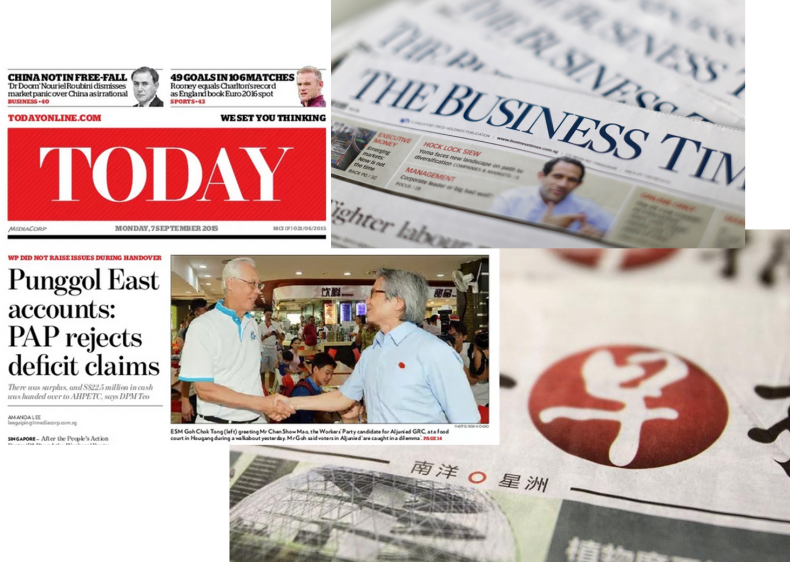
During the current election, voters who read the mainstream media will often find that it tells a consistently different story about facts, events and issues from alternative media websites such as The Online Citizen. Some have dismissed the Internet – or at least alternative websites – as an irrational space that confuses people. Others have argued that the Internet helps to balance perspectives and contributes to a more knowledgeable citizenry, and hence a better democracy.
What is the evidence for these opposing views?
A study carried out on the 2011 election sheds some light on this. Assistant Professor Debbie Goh conducted a nation-wide survey to find out whether the Internet helps increase political knowledge among voters.
Here is an excerpt from her chapter in a recently published IPS book:
The findings indicate that people who did not access alternative online sources or political websites or were not politically engaged online were indeed less knowledgeable about opposition politics. Those who consumed only mainstream media could only gain limited political knowledge of opposition parties. While it is beyond the scope of this study to conclude that the Internet alone increased political knowledge, the analysis showed that alternative media use had the strongest influence among all media types on political knowledge. The findings thus strongly suggest that the Internet had been an effective tool in helping people become more informed about opposition parties and their positions on issues. Even among those most motivated and interested in the election (the high users), the data showed that knowledge gain was greatest for those who used alternative websites.
An implication of this finding is that the Internet can be used to enhance more diverse political knowledge. Contrary to criticism that political discourse on the Internet is inaccurate and untrustworthy, this study shows that the Internet can positively influence citizens’ political knowledge about alternative parties, their candidates, and policy positions on issues. The challenge is to enable and encourage more voters to access alternative political sites. Despite Singapore’s world-class telecommunication infrastructure, a democratic digital divide still exists along socioeconomic lines. Education and income are the strongest predictors of political knowledge. Demographic variables of gender and age (in favour of men and young people) are also significant predictors of knowledge about opposition parties in Singapore. This finding is unsurprising given that those who employed the Internet for election information tended to be men, were younger, had higher income, and were more educated.
Physical access to the Internet may no longer be an impediment to Singaporeans but other barriers still need to be removed before more will become politically engaged online. Political parties and candidates keen to draw voters online need to consider that social and cultural issues discourage or present barriers to women, older voters, and voters with lower income or lower education. This may include developing content and language that are accessible and appealing to these voters. Parties would do well to also consider when these voters will be able to be engaged online. Perhaps with these in place, Singaporeans can look forward to an election where there will be diverse and equitable participation not just in terms of political parties but also voters themselves.
On Figure 1:
If we just look at the non-users of mainstream media, the gap between those in this group who were non-users of alternative media and average users of alternative media (the height P) is larger than the gap between average users of alternative media and high users of alternative media (the height Q). Also, the top two lines representing average users of alternative media and high users of alternative media are not as steep as the lowest line representing non-users of alternative media; this shows that the political knowledge of users of alternative media (whether average or high users) was not much affected by their use of mainstream media, whereas the political knowledge of non-users of alternative media was very much affected by how much mainstream media they used.
To read more of Goh’s study, please refer to her chapter “Lifting the Veil of Ignorance: Internet’s Impact on Knowledge Gap” in the book entitled “Battle for Hearts and Minds: New Media and Elections in Singapore”. which can be found a book by IPS on the 2011 General Elections. Entitled “Battle for Hearts and Minds: New Media and Elections in Singapore,” it is available in bookshops and for order online here.
Dr Debbie Goh is from the Division of Journalism and Publishing at the Wee Kim Wee School of Communication and Information, Nanyang Technology University, Singapore.
This is the fifth article in the series. Please click here for more New Media Insights.

